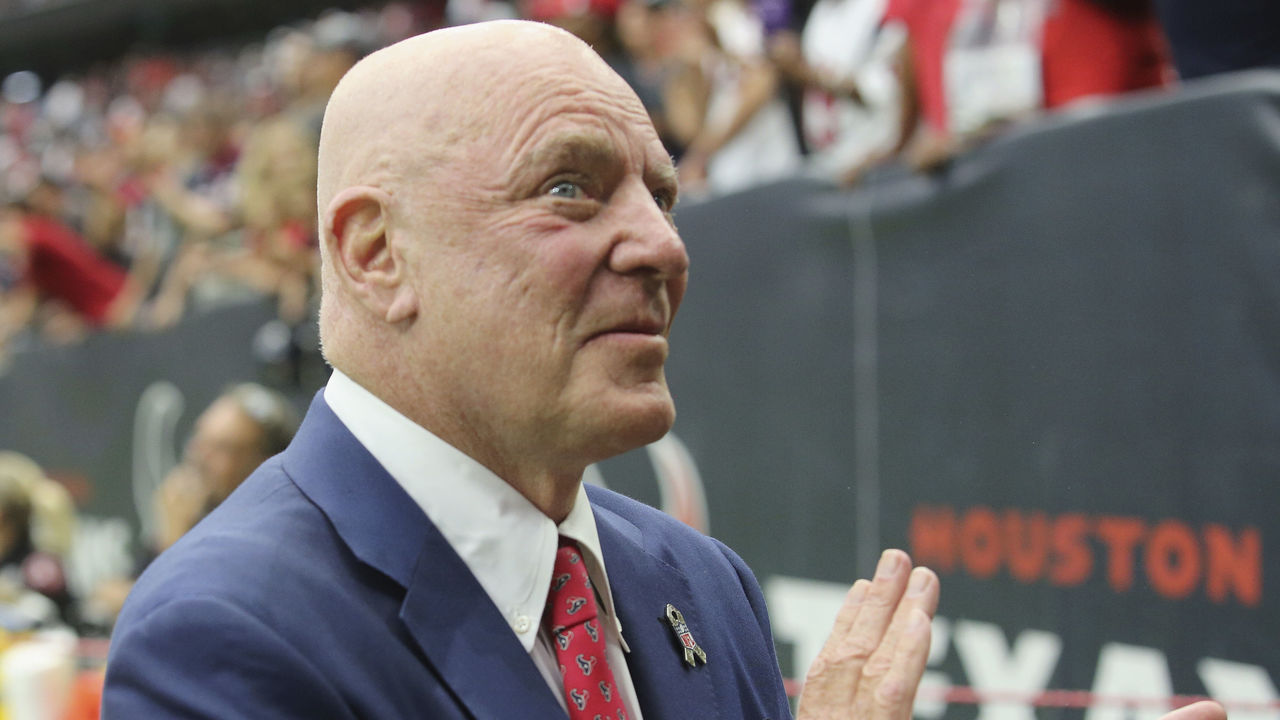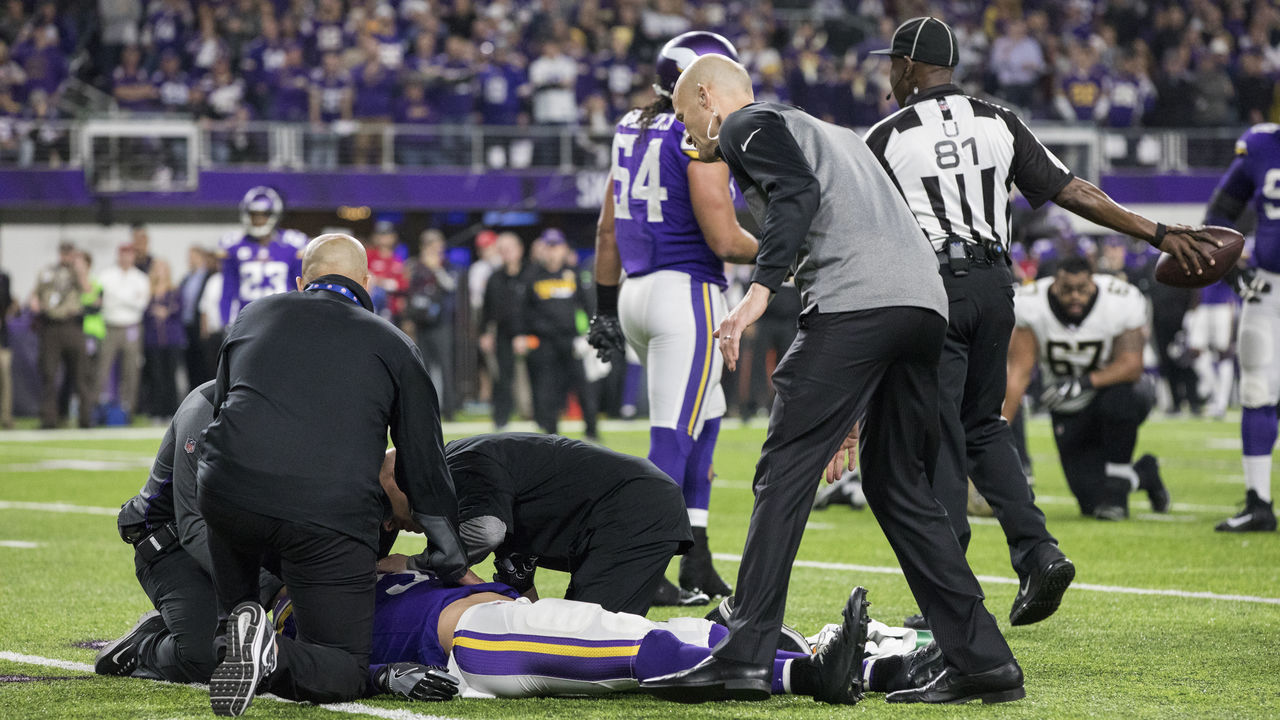NFL still rules the sports scene, but for how much longer?
The sudden, toothless, unclear policy announced by the NFL this week regarding protocol for national anthem observation became yet another public-relations disaster for a league seemingly insistent upon dragging its own reputation through the mud.
In trying to simultaneously satisfy both supporters and critics of anthem protests with rules that permit players to remain in the locker room but fine teams for sideline protests, the NFL made clear the legislation's only aim is protecting the cash flow that’s made the league No. 1 on the revenue leaderboard among the four major professional American sports.
If everyone’s happy, the league must have figured, so will be the sponsors and advertisers.
Instead, both sides are viewing the policy with skepticism. The players’ union has promised another fight and U.S. President Donald Trump, an outspoken leader of the anti-protest movement, said the policy isn’t harsh enough and suggested all players should either stand on the sideline or, perhaps, face deportation.
The NFL’s inability to appease paying customers or handle delicate situations with sense and sensitivity isn’t the new norm. It just seems that way.
In reality, the league that has leaned heavily on lies, deceit, false information, and betrayal to protect its beloved shield has failed time and again to react wisely to situations that could threaten its bottom line.
The NFL recently settled a $1 billion lawsuit alleging it intentionally concealed information linking football to brain trauma, consistently turned the other cheek on domestic violence before implementing and enforcing only mild punishments, and historically minimized and marginalized its business partners at the negotiation table and in the media.
Much like in baseball and basketball, the collective bargaining agreement (CBA) between NFL players and owners is supposed to represent a business partnership in which profits are divided close to 50-50. But that didn’t stop Houston Texans owner Bob McNair from telling fellow owners last year they can’t have “inmates running the prison” during a meeting in which anthem protests were discussed, per an ESPN report.

McNair’s comment conjured images of another historically insensitive and inappropriate moment for the league. In 1992, during an antitrust lawsuit against the NFL that would eventually herald the birth of free agency, union executive director Gene Upshaw testified that Dallas Cowboys owner Tex Schramm told him NFL players were like “cattle” and owners were like “ranchers”.
Paragons of virtue these owners are not, and never have been. But the 32 billionaires running the league can proudly boast none of their transgressions have stunted the league’s growth or threatened to kill off the Golden Goose.
Despite claims that league ratings are plummeting specifically because of outspoken players, there’s no evidence to suggest that is the case. TV viewing is down across the board for a variety of reasons, as this CNN story explains using Nielsen data. Per AdAge's January article, also citing Nielsen data, the NFL in 2017 still accounted for 37 of the year’s top 50 TV broadcasts, almost 75 percent of the most-watched shows on TV.
So, decades of morally questionable behavior from owners and players alike haven’t tarnished the brand enough to stop advertisers tossing money at the league, but one statistic that should concern all parties is the decline in high-school football participation.
Last October, the Associated Press reported high-school football participation was down 3.5 percent over the past five years, according to research from the National Association of State High School Federations. The drop is much steeper in certain regions of the U.S., the story said. Fourteen states witnessed a participation decline of 10 percent or more in the past five years and 41 states overall experienced any decline.
Several studies and investigations over the past few years have made the public more aware of the long-term damage concussions can cause. None were more harrowing than last July’s New York Times report detailing the results of a neuropathologist who studied the brains of 111 NFL players and found evidence of chronic traumatic encephalopathy (CTE) in 110 of them.
A handful of NFL players have retired well before their twilight citing concussions as a factor, and the league has instituted sweeping rule changes to reduce the number of violent collisions on the field. This year, the league changed its kickoff rules to make returns safer and also passed an ejection policy for players who use their helmet to initiate contact.

“It is no longer debatable whether or not there is a problem in football - there is a problem,” Dr. Ann McKee, who conducted the study published by the New York Times, told that newspaper.
And so the question becomes: Where is the NFL headed?
Can the league continue to stiff-arm these formidable opponents – from the protest/anti-protest crowd to growing concern over player safety to fractured owner-player relationships – and maintain its top billing among the professional sports landscape?
With salaries rising in the NBA - a league that fully guarantees contracts and hasn’t experienced nearly as much player-owner friction as the NFL - and baseball wages also guaranteed and far more exorbitant for middle-of-the-pack players, will parents steer children away from football and toward another sport?
Last April, CBS News reported on a Harris Poll survey of more than 1,000 parents who were asked if they would allow their children to play sports knowing concussion risks. Only 51 percent of the parents answered yes; 16 percent said no.
Of those parents who answered yes, 66 percent said they’d allow their children to play basketball, 63 percent approved of baseball, and 57 percent welcomed soccer. Only 18 percent were OK with their children participating in football.
Given this information and the current NFL climate, which is sure to become more volatile when the current CBA expires in 2020, it’s fair to wonder if the country’s most-watched sport will be able to persevere undeterred.
NFLPA leadership has already insisted upon major changes for the players to agree to an extension of the CBA, and that was before the latest anthem policy was implemented without their input or, reportedly, even an official vote among the owners.
Despite its blemishes, the NFL has remained king of American sports for some time. But for how much longer?
Geoff Mosher is an award-winning sports reporter, radio host, and TV personality with more than 20 years of experience covering all major sports and leagues. He also hosts regularly on 97.5 The Fanatic in Philadelphia and is co-host of "The Sports Shop" on Facebook.
(Photos courtesy: Getty Images)